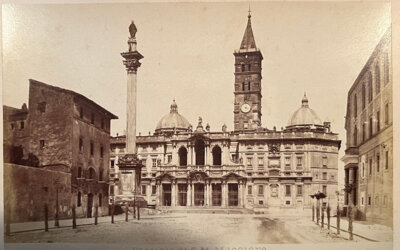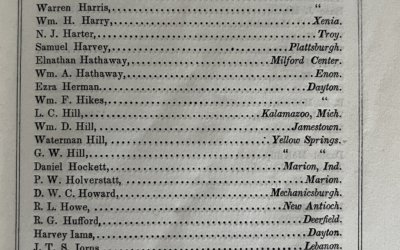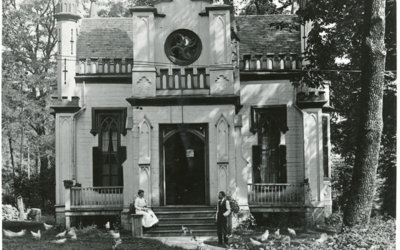From the Department of Two Against One comes the following letter from George Combe Mann, Horace Mann, Jr.’s brother. Dated the very same day as the Mary Mann letter from our last installment, taken together they appear to have been written in concert with each other to get him to end his botanical studies of Hawaii and return home to Massachusetts. While it is not entirely clear who put whom up to writing these letters in the first place, it’s probably safe to bet on the parent.
George Combe Mann (1845-1921) was named for a famous British phrenologist who Horace Mann admired greatly. To illustrate this admiration 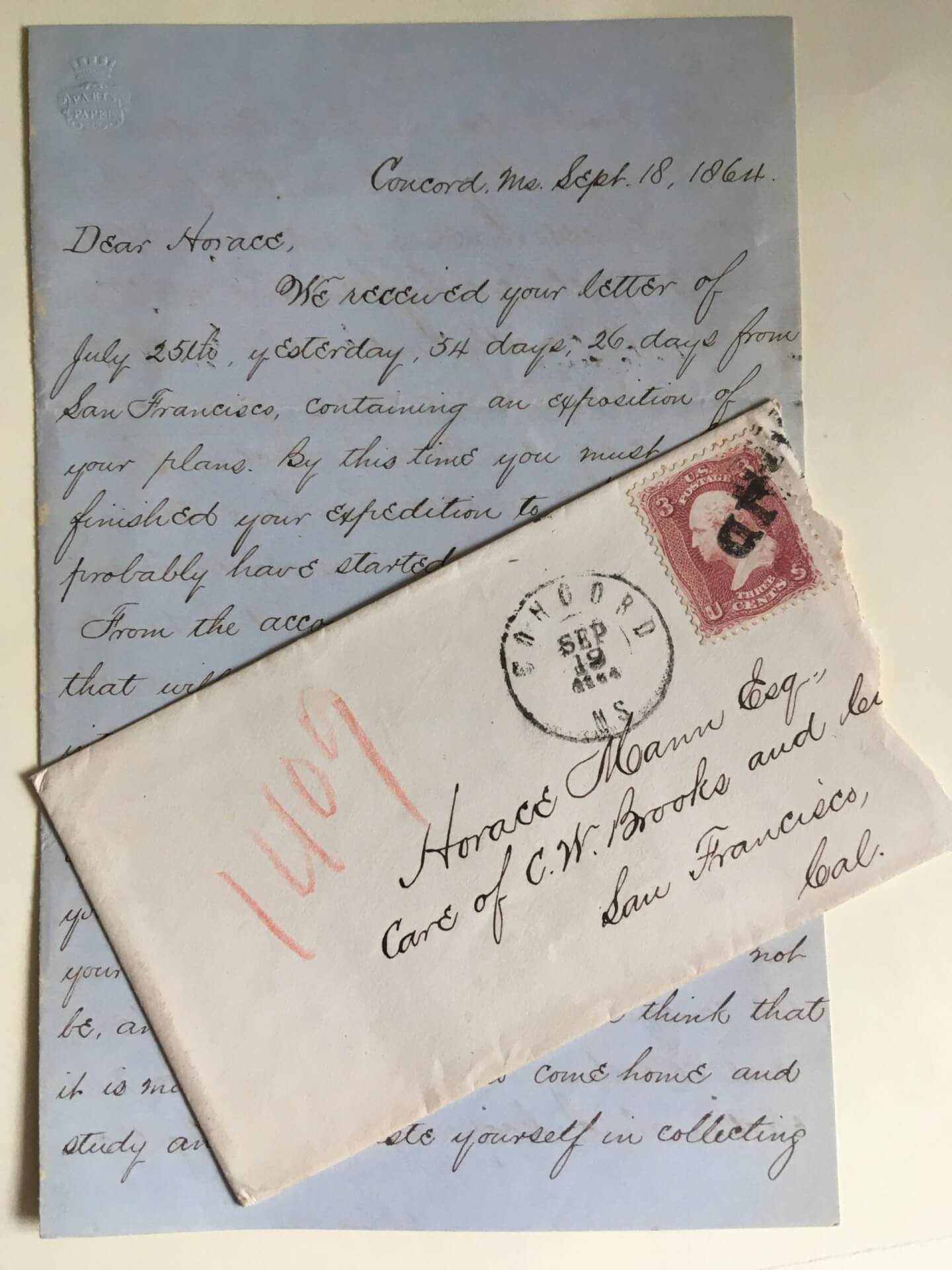 a bit further, Combe’s landmark work, Constitution of Man: Considered In Relation To External Objects, was one of the first volumes added to the first Antioch College library and multiple copies still reside in the special collections at Olive Kettering. Just eight years old when his father became president of the College, George grew up in Yellow Springs. Returning home after Horace Mann’s death in 1859, he attended Harvard, graduating in 1867, and had a long career as a teacher and school superintendent.
a bit further, Combe’s landmark work, Constitution of Man: Considered In Relation To External Objects, was one of the first volumes added to the first Antioch College library and multiple copies still reside in the special collections at Olive Kettering. Just eight years old when his father became president of the College, George grew up in Yellow Springs. Returning home after Horace Mann’s death in 1859, he attended Harvard, graduating in 1867, and had a long career as a teacher and school superintendent.
Like his mother, George is paying close attention to the news of the day, meaning the Civil War and the presidential election about to be held in the middle of it. He seems confident that the war’s recent progress will ensure the reelection of Abraham Lincoln and the end of the rebellion. Worth noting is the Wilkes he refers to as his source for information about Hawaii is Charles, a US Navy officer and explorer who led and published Voyage Round the World: Embracing the Principal Events of the Narrative of the United States Exploring Expedition in 1849. The highly controversial Wilkes, known for his harsh discipline and arrogant behavior, may have been Hermann Mellville’s chief inspiration for Captain Ahab. At the time of this writing, George is a Harvard undergraduate and relates seeing some classmates familiar to his brother including the son of Ralph Waldo Emerson.
Unless he is simply doing his mother’s bidding, George dismisses his brother’s rapidly growing expertise (“you don’t know much out of the scientific way”), suggesting that another specimen-gathering expedition will somehow result in Horace Jr.’s self-realization that his education is inadequate, which seems unlikely. According to George, Horace the Younger (as he often called himself), on the verge of becoming an international authority on plant life, should heed the worst kind of advice there is (unsolicited) and not pursue his dreams.
Concord, Ms., Sept. 18, 1864.
Dear Horace
We received your letter of July 25th, yesterday, 54 days, 26 days from San Francisco, containing an exposition of your plans. By this time, you must have finished your expedition to Hawaii, and probably have started on the other one. From the account of Hawaii in Wilkes, that will undoubtedly be an extremely interesting trip. By the time you get back from the other voyage you will know if any arrangement has been made by which you can stay longer (such as you spoke of in your last letter), but I hope there will not be, and mother does too, for we think that it is much better for you to come home and study and not waste yourself in collecting merely. Mother does not like the idea of your staying so long, and, in the present circumstances, it seems to me I would not. The prospect here brightens. The McClellan party will possibly have a split, on the platform, and Lincoln’s re-election grows more certain every day. With his election, the rebellion will collapse. They have taken good care that their armies should be full, and they have always been full. Last winter they got everybody into the army, and the result was, that when the campaign opened, they seemed stronger than ever. But soon the losses began to tell. They did not have two millions of able-bodied men who had not been in the army, as we have now, and the consequence is that Atlanta has fallen, and Petersburg will. The hope of the Nov. election alone keeps their army together. If McClellan should be elected, everything would be lost, but he won’t be. I hope when you come home, it will be in peace. Then you know that you have not yet finished your education, and the sooner you go about it, the better. There is one thing which I think does a person more good than anything else, and that is a willingness to take advice, or at least to listen to it, and consider whether it is worth anything. To despise advice is to say “I know best” and to set yourself up as the best reasoning person in the world, or in one word “conceit,” and I know that that is not your style. Of course, one understands one’s own feelings and the circumstances he is in, best, but discuss the whole matter with some one for whose opinion you care, and you will find that “taking good advice” never hurts you. I hope when you answer this letter and the one which I know mother will write, that you will inform us that you are coming home soon. Of course the expedition will do you good, and perhaps, among other things, it will teach you that you don’t know much out of the scientific way, and show you how much better in every way it will be to have a general education, and not be one who knows nothing but Botany, Geology, &c. I don’t intend this as “good advice” but it is what everybody thinks, and what you will think in after years.
College life has been quiet. Sam, Edw. Emerson and I came up on Wed. eve. to Geo. Keyes’ tin wedding, and went back, via Lexington, in time for prayers. The same evening they had a lovely row in Cambridge, on the occasion of a party of McC. ites undertaking to raise a McClellan flag, and calling themselves the “Harvard McClellan Club.” I was sorry not to be there, but their old flag won’t stay there much after the moon has gone. Perhaps a very near relative of Ben will have Charley B. Davis’ McClellan flag in some room in Harvard College before the election. comes off. Good bye,
Your loving brother,
Geo. C. Mann
H. Mann, Pacific Ocean
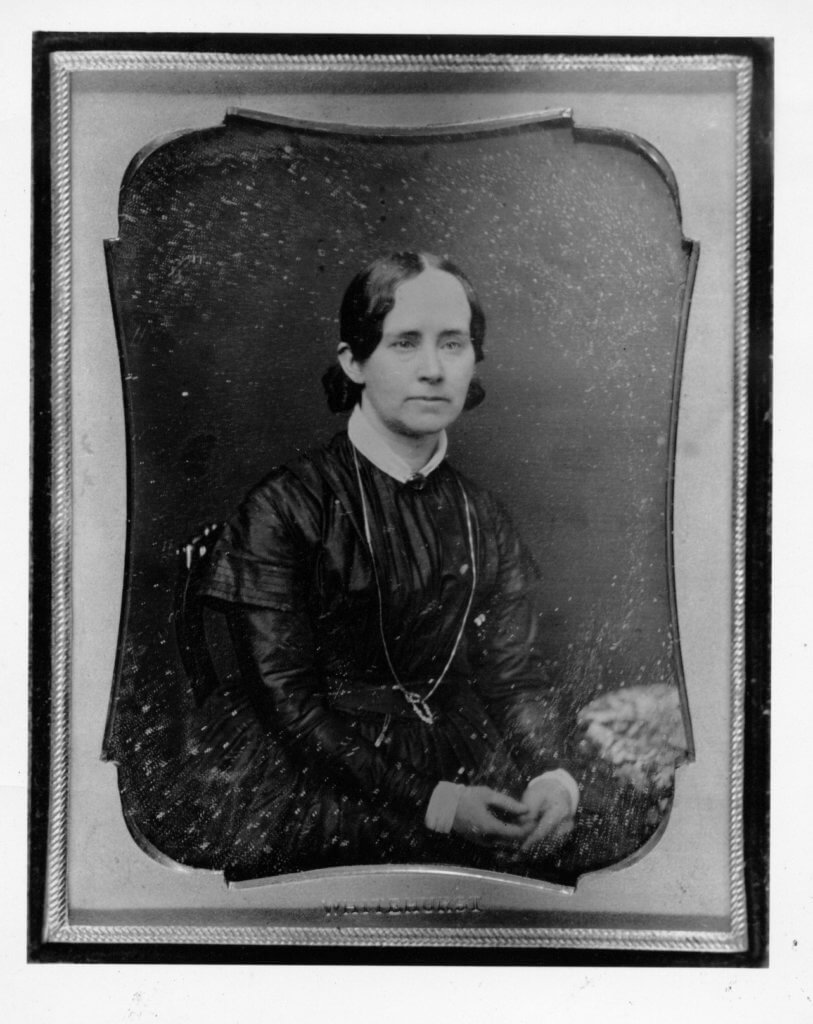
Mary Mann
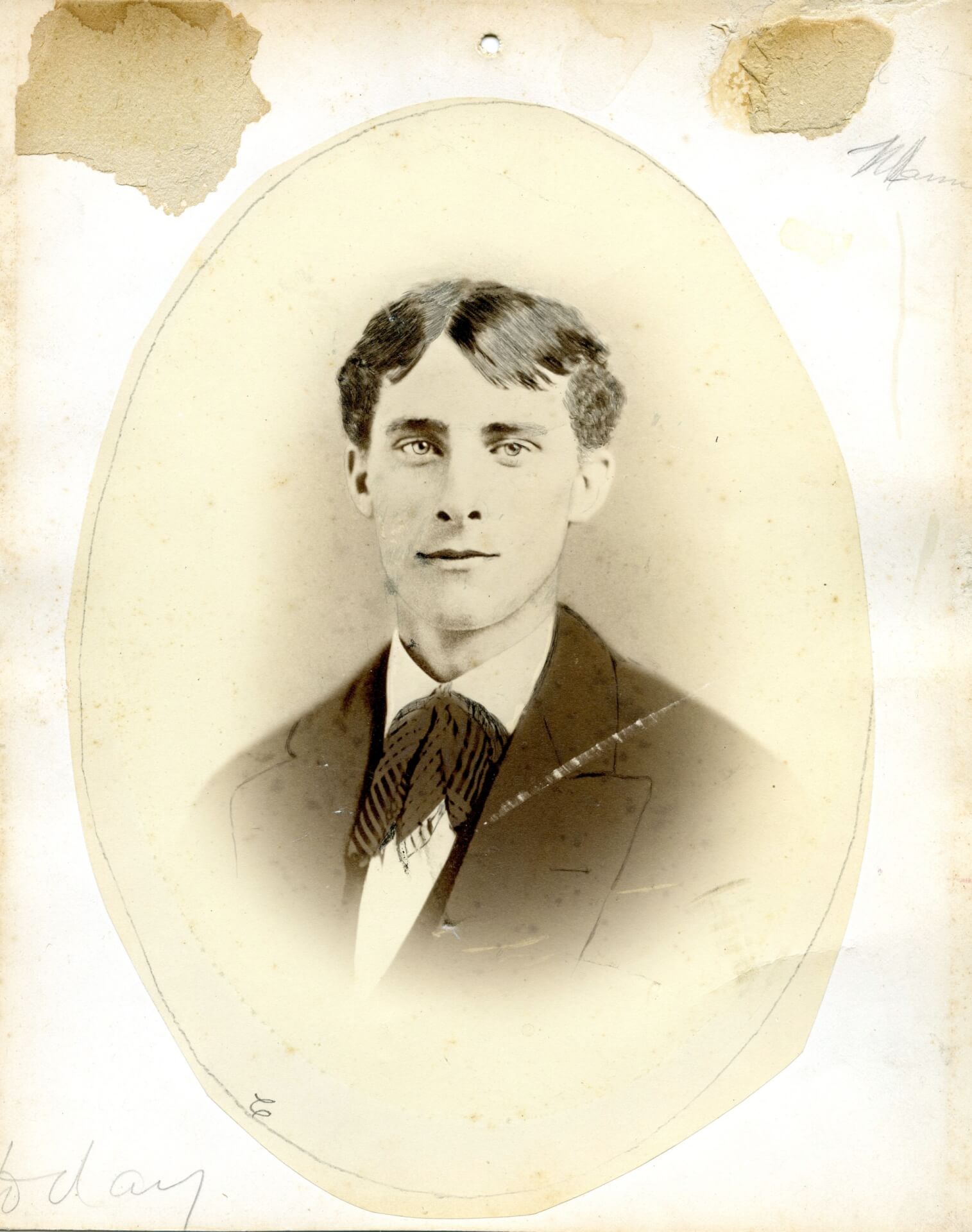
Horace Mann Jr.
“Songs From the Stacks” is a regular selection from Antiochiana: the Antioch College archives by College Archivist Scott Sanders.

